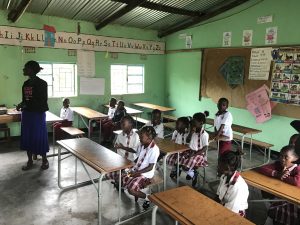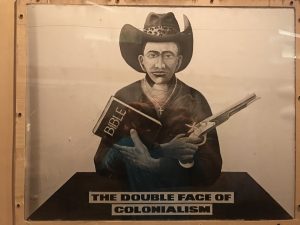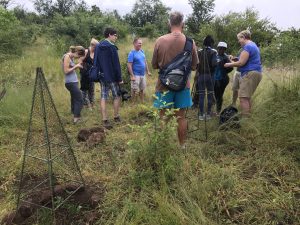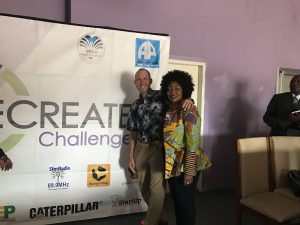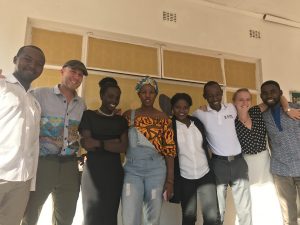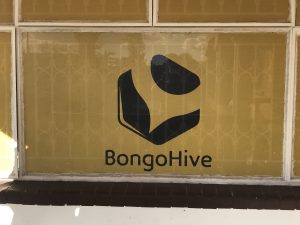Foreign Investment and Entrepreneurs in Zambia’s Startup Ecosystem
Foreign Investment and Entrepreneurs in Zambia’s Startup Ecosystem.
Zambia’s open-investment policy is causing a boom in economic activity
Most Meaningful Experience: Making friends at Bongohive.co.zm and working with Entrepreneurs
Flying into Zambia, I was still hustling to get my presentation together. This would be the first time I’d be teaching again since my stint in Nigeria a few months back and, as I was being sponsored, I wanted to make a good impression.
After feeling lost and without purpose in Cape Town, I suddenly felt like I’d found my calling and was on a mission to support African entrepreneurship. I was also interested to learn if the economic development I’d encountered in Livingstone was making an impact in Lusaka as well.
I’d been introduced to Bongohive, the local tech incubator, by a Zambian friend in D.C. and he’d connected me with Emma, the manager of the state department’s sponsorship program. They had a budget to fund five Americans each year to work with local Zambian companies and I’d showed up just in time.
Emma was a young and energetic Brit who was on top of things both organizationally and socially, introducing me to plenty of expat non-profit workers and local entrepreneurs. The UK had a long-established relationship in the region since colonial days and have continued to foster development through investments since pulling out of the region.
I flew into the Chinese-built airport in Lusaka (one of many Chinese infrastructure investments in the region) and was picked up by the American chamber rep Wilfred. With his big smile and endearing British accent, he was determined to show me a good time and had booked out my schedule tighter than when I was working in tech back home. Each day, he picked me up bright and early for presentations at Bongohive, AmCham or WeCreate, with nights spent drinking Guinness at a local Irish pub.
Lusaka mushroomed seemingly in the middle of grasslands, with plenty of new hotels, shopping malls and a huge American embassy having just been built (we even passed a non-profit teaching Zambians to play baseball). While the new economic laws seemed to be benefitting the country, poverty was still visible.
I was staying at the Lusaka Hostel, which centered around a small pool where travelers and locals hung out drinking beer at night. It was during one of these sessions that I learned how HIV was still a big issue, although getting smaller, in the region and the availability of affordable ARVs only seemed to be exacerbating the problem. People had the mindset of it not being a big deal anymore as the drugs made it possible to live a normal life. People would sometimes lie about having the disease or just be willing to play the game of roulette, not worrying if their partner had been tested or not. While ARVs certainly helped people to live a better life this social problem was surfacing over the last few years.
A highlight of being in Zambia was spending time with Bongohive, a local incubator run by Simunza, Lukonga and Silumesii. Smart, charismatic and driven, they were excited about building companies in industries that ranged from clothing and furniture design to ride-sharing and SMS services. But trying to raise capital was tough and they could only be sustained by a combination of investments from foreign governments and the Zambian diaspora. I tried to figure out how we could solve this issue and thought maybe a bigger pitch was required to make it work.
Wilfred made sure I had a broad experience during my time in Zambia. He sent me to WeCreate – a Hillary Clinton-led initiative for women’s entrepreneurship that operates around the world. In many developing countries, women bear the brunt of suffering and Clinton wanted to empower them through entrepreneurship.
During my time at WeCreate, I worked with women who sold eggs, fruit and fashion while hearing stories of men stealing their money and products or simply destroying them. Others were told they “don’t do business with women”. I had no response but tried to stay the course, teaching them some of the basics of economics. Coming out of that experience was crushing and made me much more empathetic to the plight of women in these countries. That said, BongoHive’s entrepreneurs were 50% women and they had proven to do well in fighting through the system.
Wilfred also invited me to present to a life insurance company of around 30 sales people and meet with Brian, an American entrepreneur who’d built a profitable fish farm and a motorcycle lending company. It was great to see the energy and excitement in Zambia around startups. The country’s open investment policies, relatively clear legal infrastructure and copper/mining investments are helping to spawn the future growth of the economy. Hopefully they will continue to welcome expats and foreigners to invest, as in my opinion, they will be a key to the country’s economic development and growth.
Unfortunately, I didn’t get to see much of Zambia as I was being shuffled off to Zimbabwe but left feeling optimistic that foreign governments can impact developing economies. But in the following week, Trump released policies to cut funding in Africa and my hope turned to skepticism, something that only worsened in Zimbabwe.
